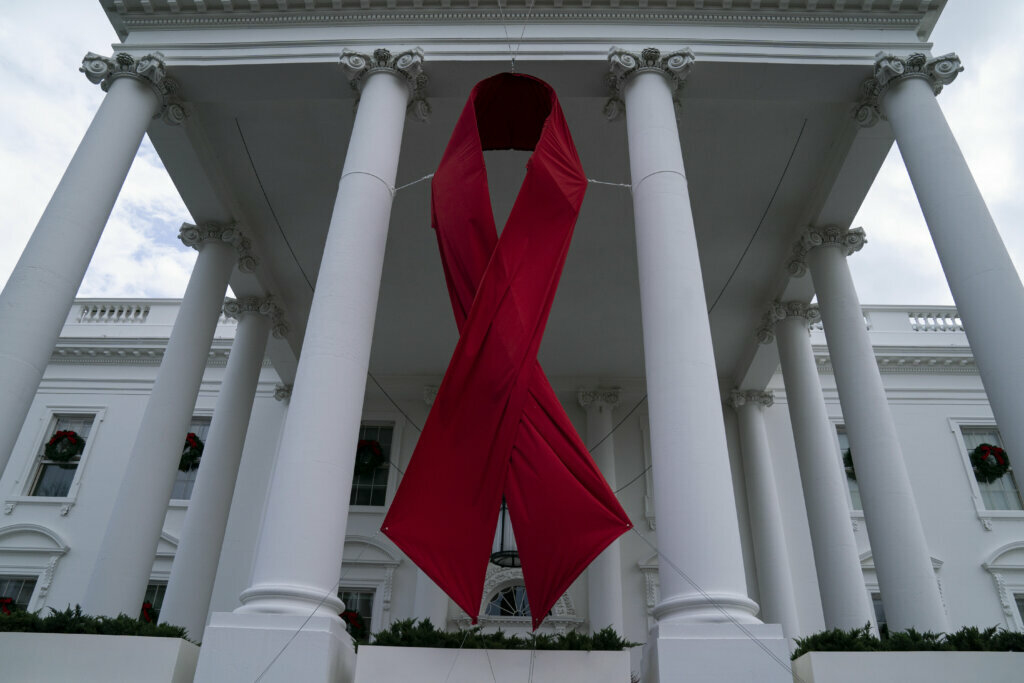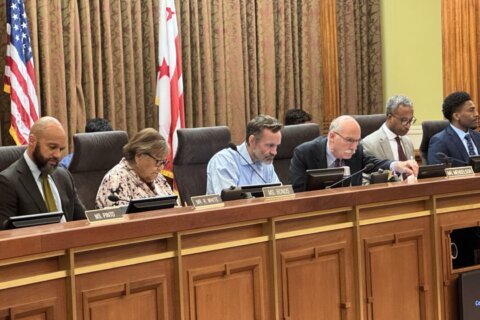
Four jurisdictions in the region are on a shortlist of areas in the U.S. where HIV is being diagnosed at higher rates than the rest of the country.
They are Baltimore, and Montgomery and Prince George’s counties in Maryland, and D.C.
In Montgomery County, 4,111 people are living with HIV, with 135 of them diagnosed last year.
The county’s placement in the “priority jurisdiction” for the federal Ending the HIV Epidemic Initiative comes as a surprise to many people.
“When we were identified as one of the communities as part of ending the HIV epidemic, I had a number of folks saying, ‘Well, that number can’t be right. Is that the number of people who test positive and then go back to their homes? That can’t be here,'” said Montgomery County Health Officer Dr. Travis Gayles.
Gayles spoke during an HIV virtual town hall meeting Tuesday held by the county to mark World AIDS Day.
“This is the picture of Montgomery County. We’ve held the attitude, ‘It’s not us; it’s another jurisdiction’s problem.’ On a national level, we haven’t always been seen as a community in need to support,” Gayles said.
Of the 135 people diagnosed with HIV in 2019, two-thirds were male; almost half were heterosexual transmissions; 62.2% of those diagnosed were Black; and 21.5% were Hispanic.
Gayles believes this points to systemwide issues.
“I think another factor in health disparities is systemic racism, systemic stigmas, systemic homophobia, systemic transphobia, systemic injustices across the board that impact who leads our organizations, determines who gets funding, who has a seat at the table and coming up with strategies that are rooted in the realities of the communities we’re hoping to help,” Gayles said.
By being named a priority jurisdiction, Montgomery County will be able to secure additional resources and technologies to try and reduce the HIV rate.
The county is also unveiling its own goal of reducing HIV transmission by 90% by 2030. Check out the county’s plan here. Learn more about how to get in-home testing here.
The plan for the county is to increase HIV testing availabilities, help positive residents find health care services they need and make it easier to obtain prevention medications — such as PrEP or preexposure prophylaxis — and other prevention tools and education. The county is also fine-tuning its ability to respond to HIV outbreaks.
HIV testing is recommended for residents, even if they don’t think they are at risk. And those who test positive should get treatment and have an open, honest conversation with their doctors about preventive measures.
A positive test is not what it used to be, Gayles said: “What I used to tell my newly diagnosed patients is that your life trajectory will not change if you are compliant with your medication.”
Gayles added, “You’re going to still be able to pursue everything that you thought about pursuing, in terms of professional goals and personal goals, and there’s hope the medication will get even better, where we may have a cure that takes away from the need for medication every day.”








